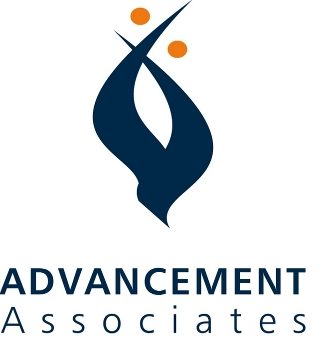In our consulting work, we often hear certain words defined differently and used interchangeably:
• Do you use mission or vision when referencing the raison d’être of your organization?
• In creating your strategic plan, do objectives support goals, or is it the other way around?
• And what about advancement and development? Is each synonymous with fundraising, or are there important differences?
While Webster might disagree, we think there is more than one answer to the first two examples, at least when they are used to describe how many human service organizations strive for strength, health and effectiveness. Whatever the definitions, we believe it is important that such words are used consistently across the organization to promote common understandings among decision makers and active support among stakeholders.
In providing consulting services for church-related nonprofit organizations, however, we have found there are important distinctions to be made between advancement, development, and fundraising. The latter two may be interchangeable terms; advancement, however, is a different matter.
Articulating the differences and relationships among these words, and considering them carefully as you build strategies to interact with your stakeholders can make a dramatic difference in garnering necessary support for your organization.
To “advance” means to “move ahead.” To accomplish that result, an organization must develop genuine relationships with a sufficient number and the right sorts of stakeholders. When that has been successfully done, these friends will offer support in five specific ways:
• Giving their time as board members or volunteers at the quilt auction.
• Praying regularly for your organization and the vital work it does.
• Participating in estate planning seminars and special events.
• Advocating for your organization within their church, work and social circles.
• And, yes, making generous, regular financial contributions when invited.
We believe that each form of support is essential for your organization’s overall well being and that none is more important than another. We also contend that, for maximum effectiveness, you must build an advancement program that actively invites your stakeholders to offer support in all five ways–not just money–and that you must truly recognize and value each of these gifts.
Having suggested that fundraising (development) is just one component of the broader advancement effort, we understand that the need for more financial contributions is often the driving force behind an organization’s desire to build relationships with stakeholders and, therefore, the focus for much of our work. Even if that is the case, however, an adequate understanding and application of the advancement concept are essential to securing fundraising success. Here are some examples to illustrate the point.
1. When soliciting financial gifts, invite donors to support you in the four other ways described. They will welcome the opportunity and become even more invested in your organization.
2. To create the best list of potential new donors, first identify those friends who are already giving their time or praying for your organization.
3. It goes without saying, don’t visit donors only when inviting a financial contribution! Think of other opportunities to create strong relationships.
4. Give careful thought to what it takes to build genuine relationships with stakeholders–regular communication, honesty and openness, promptness, genuine interest, and more–and be certain your advancement activities reflect those attributes.
5. If you list contributing stakeholders in an annual report, be sure to include among names of “friends” all those who supported your organization, not just those who gave money.
Our name is Advancement Associates for a reason. Likewise, we believe that building an advancement program—not just a development program—will make a “defining” difference for your organization too!
